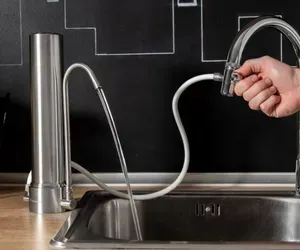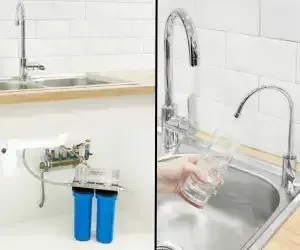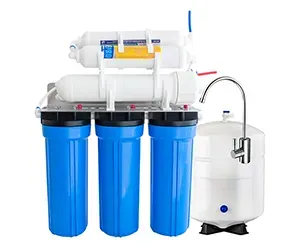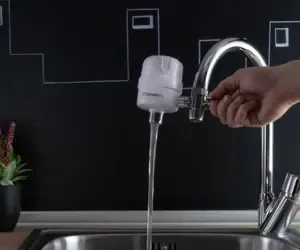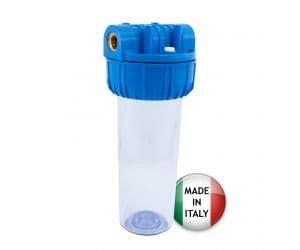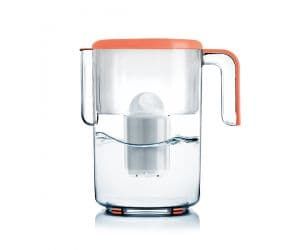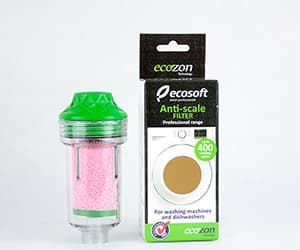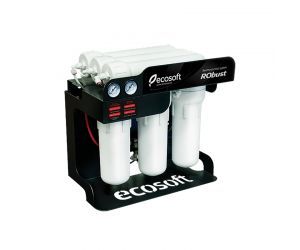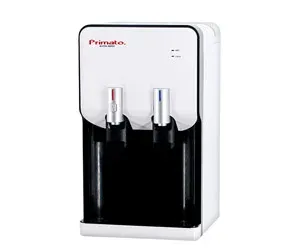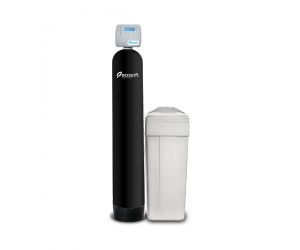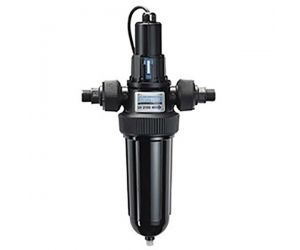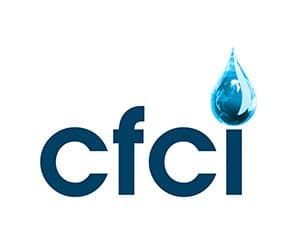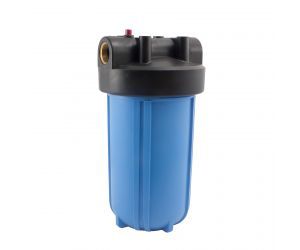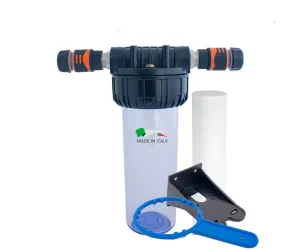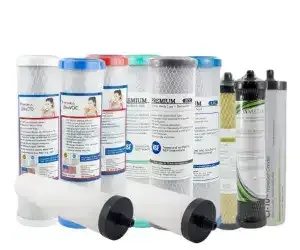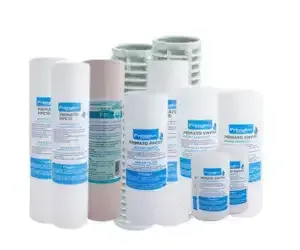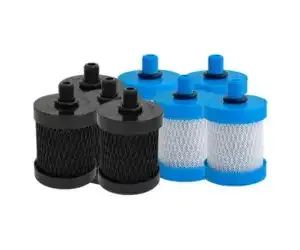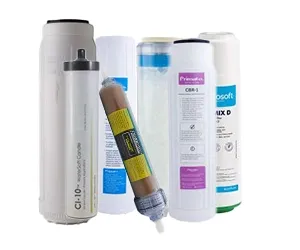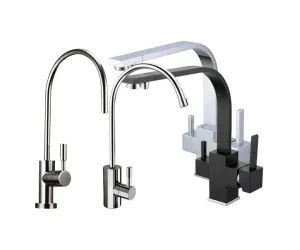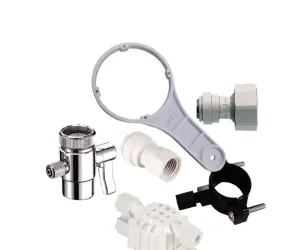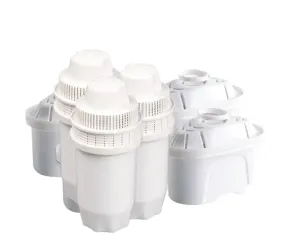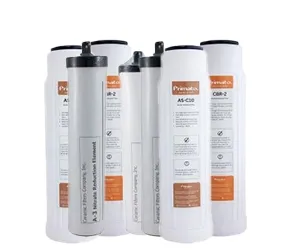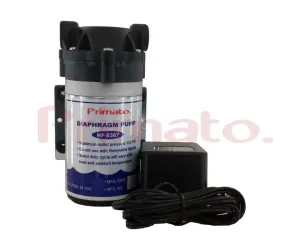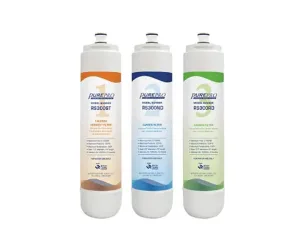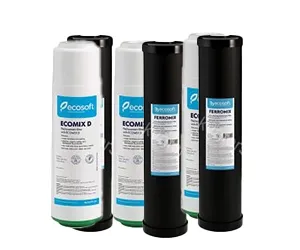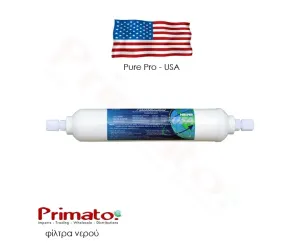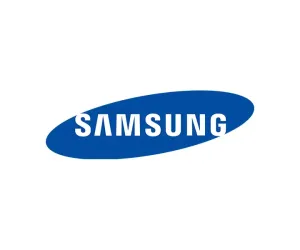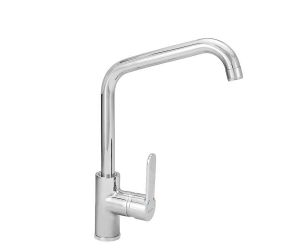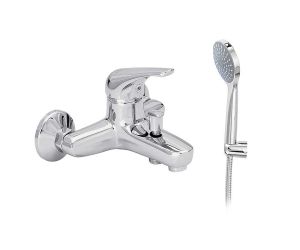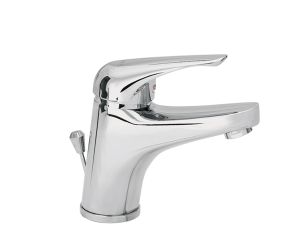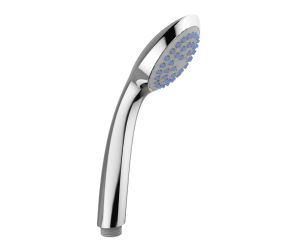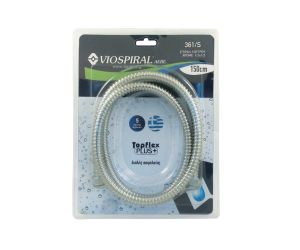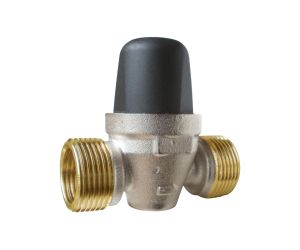Choosing and buying a countertop water filter
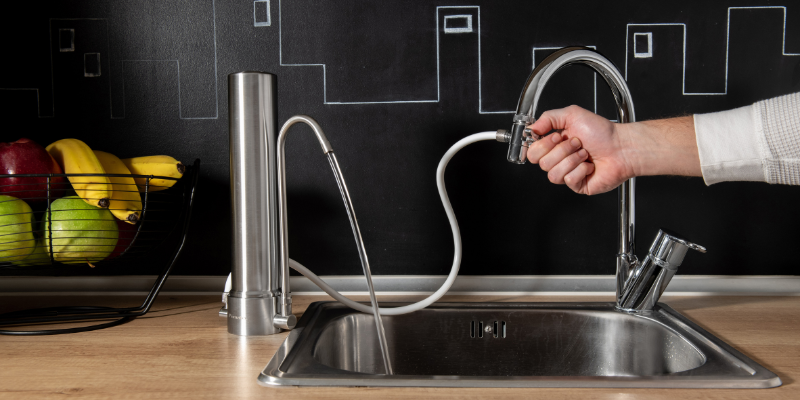
Countertop water filters are placed on your kitchen counter and are easily connected to your faucet with a diverter. With a switch of this diverter you can select unfiltered water (eg to wash your dishes) or filtered water (to drink, cook, wash vegetables etc). You can also fill empty bottles with clean water.
Short video
Countertop water filters
They are very practical as the filter's tap can turn to any direction and the tube can be cut to suit your needs. There are various types and models so we are certain you will find one that suits you best. They connect to M22 and M24 type faucets, which is pretty much all the faucets except "shower" type faucets.
How do they work?
Inside the housing, there are special activated carbon filters, ie a thin, odorless, tasteless and non-toxic black powder with extremely porous surface produced by cracking of organic materials of plant origin. It is essentially a charcoal that has been reheated and oxidized to activate and increase the size of its pores. Activated carbon is created from bamboo, olive stone, sawdust as well as from other sources such as peat, charcoal, etc. However, the best activated carbon comes from the coconut shell. It is the most ecological and environmentally friendly and is used in water filters of the highest quality. Coconuts (through a special treatment) are converted into activated carbon that has the ability to bind various substances that come in contact with it, in liquid and gaseous form, and in quantities many times its weight. To understand its excellent absorbency, it is enough to consider that a tablespoon of activated carbon has the same area as a soccer field!
How does activated carbon work?
As water tries to pass through very small holes in the activated carbon filter, its harmful elements are stored in the carbon micropores and so the water comes out filtered. Activated carbon filters completely remove the unpleasant taste and smell of water and mainly reduce chlorine and its by-products such as chloroform, suspended particles, sand, rust, mud, soil, salts and many other harmful substances. . However, depending on the compression and quality of the carbon, activated carbon water filters can reduce a number of other harmful substances. If activated carbon is combined with ceramic material, then it acquires bacteriostatic properties while its combination with zeolite allows it to effectively reduce heavy metals, volatile organic compounds, industrial residues, pesticides, pesticides, etc.
Which countertop water filter to choose?
Generally you should be aware that water filters should not be installed for water that is microbiologically unsafe such as non-chlorinated well water or well water. So if your tap water is drinkable, depending on the problems of your area network, you can choose over-the-counter water filters with a single or double filter. In areas with "difficult" water, choose a double filter to ensure crystal clear water for you and your family. In any case, before deciding which filter to buy, contact Primato experts to discuss your needs and suggest the right one.
Recent posts
- Well Water in Greece: What’s Really in It and How to Make It Safe
- NanoMetix 10" 0.01μm Water Filter | Advanced Nanofiltration Against PFAS & Microplastics
- The Future of Water: How Primato Filters are Pioneering New Standards in Water Safety
- Primato's Journey at Aquatech Amsterdam: Building Bridges and Expanding Horizons
- The Journey of Water: From Source to Tap - Understanding the Filtration Process
- What are three way water filter taps?
- Shower water filters
- Commercial water filters for hotels, restaurants and cafes
- The reason why more and more people prefer undercounter water filters
- Zeolites in water treatment
- The water supply network of Athens
- The whole truth about water filters
- Russian water filters with aragonite - Purchase guide
- Choosing and buying a countertop water filter
- I live in Athens. Do I need a water filter?
- Water Filter Prices: Full Guide
- Does filtered water help with allergies?
- 10+ reasons to add more water to your lifestyle!
- Zeolite: A natural mineral in the service of water filtration
- Thessaloniki Water: From the source to the glass
- Meet the Greek Water Filters Manufactured in Thessaloniki
- Water Filters with Zeolites
- Turning a coconut into activated carbon
- Thessaloniki: Which Are The Best Water Filters?
- Tap water in Greece: Is it safe? The problems and the solutions
- How to Choose the Right Replacement Filter
- Ultra filtration and Hollow Fiber Membranes explained
- How hard is water in Thessaloniki?
- Whole house water filter cartridges - How to choose the right one!
- Countertop water filters - What to look for before I buy
- Do I need a water filter if I live in Athens?
- Everything you need to know about tap water filters
- Under-sink water filters - Everything you need to know
- Reverse Osmosis - What is it and how it works
- World Water Day - 22 March
- Primato goes sailing!
- What is the activated carbon found in our water filters?
- What are water filters?
- Reverse Osmosis - Perfect for islands, drilling water and aquariums
- Hexavalent Chromium - A Carcinogen That Should Be Reduced Immediately!

George Margiolos
George Margiolos was born in Thessaloniki and has graduated from the Department of Marketing of the Alexandreio Technological Educational Institute of Thessaloniki. He is fluent in English and (not so fluent) in German.
Ηe has been Project Manager at Avery Dennison - Fastener Division in the UK. There, his main project was to redesign the company's products into new applications so as to become more environmentally friendly. In combination with the fact that in the UK people are more familiar with water filters, he has developed a love for environmentally friendly water filters, which reduce the use of plastic bottles and improving people's quality of life.
Since 2008, he has published over 300 unique educational and informative articles on water filters and new water treatment technologies.
Occasionally, universities and doctoral students request to use George Margiolos' articles in their research because of their quality and uniqueness.
